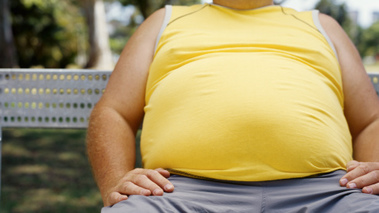
Latest NICE guidance says that while there’s no “silver bullet” solution for overweight or obesity, taking small practical steps can help.
Maintaining a healthy weight has become increasingly important public health issue in recent years.
Over the past two decades the number of people classed as obese has nearly doubled. This raises concerns, as carrying extra weight increases the risk of a range of long-term conditions such as coronary heart disease, liver disease, type 2 diabetes, and stroke.
People who are overweight or obese may also experience mental health problems, stigmatisation and discrimination because of their weight.
The new guideline is aimed at all those who provide information to help different population groups maintain a healthy weight or prevent excess weight gain, and supports existing NICE guidelines.
It aims to tackle the significant public health problem of obesity by providing practical advice on steps people can take to maintain a healthy weight and prevent excess weight gain.
Weight gain in adulthood is not inevitable
Practitioners should clearly communicate the benefits of gradual improvements to physical activity and dietary habits.
NICE says that weight gain in adulthood is not inevitable. Being physically active and eating a diet based on food and drinks with a lower energy density can help avoid gaining weight with age.
A combination of actions is needed to maintain a healthy weight. Furthermore, improving dietary habits and being physically active are as important for people who are currently a healthy weight as for people who are already overweight.
No more than 2 hours of TV a day
NICE recommends that people should be encouraged to be more physically active and reduce sedentary behaviour to increase the amount of energy they use.
People should build activity into their daily lives, developing routines and habits that gradually increase the amount of their activity.
This includes increasing regular walking and activity, and reducing TV viewing and screen time for example, through TV-free days, or by limiting TV watching to a maximum of 2 hours a day.
Reduce energy-dense food and drinks
NICE recommends that everyone should be encouraged to follow a diet that is mainly based on vegetables, fruits, beans and pulses, wholegrains and fish.
In addition, everyone should be encouraged to reduce how often they eat energy-dense food and drinks such as fried foods, biscuits, savoury snacks, confectionary and drinks made with full fat milk or cream.
Elsewhere, the guidance recommends adults not exceeding recommended levels of alcohol consumption as all alcoholic drinks are a source of additional energy.
No 'silver bullet' solution
Professor Gillian Leng, deputy chief executive and director of health and social care at NICE, said: “A significant amount of effort is needed to lose weight and keep it off – it is often much easier to make changes to physical activity and diet to help maintain a healthy weight or prevent weight gain.
“This guidance sets out the many things individuals can do to maintain a healthy weight that are known to be effective: walking more, limiting TV and other screen time, eating more healthily, avoiding sugary drinks and drinking less alcohol.”
Professor Nick Finer, consultant endocrinologist and bariatric physician at UCL Hospitals, said: “Maintaining a healthy weight, or losing even modest amounts of weight if overweight, brings both immediate and long-term benefits – for example preventing the development of high blood pressure or diabetes.
“These guidelines should help the public and health care professionals, to access advice and support that is based on evidence so avoiding ineffective and fad approaches to weight management.”
Dr Alison Tedstone, Chief Nutritionist at Public Health England, said: “There is no ‘silver bullet’ solution to reducing overweight and obesity; it is a complex issue that requires action at individual and societal levels involving industry, local and national government and the voluntary sector.
“Changes that improve calorie balance such as having smaller portion sizes, limiting snacking and swapping sugary and fatty foods for healthier alternatives can all make a big difference to our weight.”